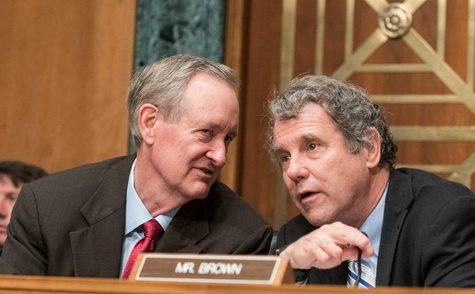
As Congress strives to address the challenges of controlling the use of shell companies engaged in money laundering, tax evasion and terrorism financing, a number of legislative proposals are being considered that could impair capital formation and threaten important privacy protections for real estate. In two recent comment letters (Nov. 6 industry coalition letter and a Nov. 13 broad business coalition letter), The Roundtable and other organizations detail their concerns about the measures.
- As stated in the Nov. 6 industry letter to the Senate Banking Committee, “While well-intentioned, we believe the proposals currently under consideration that are designed to increase the transparency of the ownership structure of limited liability companies (LLCs) and real estate transactions would have negative, unintended consequences on the broader real estate market. Several of these bills would place a significant compliance burden on owners of small businesses classified as corporations and LLCs, subject these businesses to potentially harmful privacy breaches and expose them to excessive and punitive damages.”
- The letter also states, “While we support efforts to eliminate terrorism financing and money laundering, we remain concerned about the cost of imposing additional beneficial ownership reporting requirements on real estate partnerships and the extent to which these provisions could impair capital formation, threaten important privacy protections and increase compliance burden.”
- The four specific legislative measures under consideration in the House and Senate are:
* On Oct. 22, the House passed the Corporate Transparency Act of 2019 (H.R. 2513) – introduced by Reps. Carolyn Maloney (D-NY) and Peter King (R-NY) – that would shift FinCEN reporting requirements from banks to the business community, requiring every business with fewer than 20 employees to register their beneficial owners.
* Improving Laundering Laws and Increasing Comprehensive Information Tracking of Criminal Activity in Shell Holdings, Illicit Cash Act (S. 2563)
* True Incorporation Transparence for Law Enforcement, TITLE Act, (S. 1889)
* Corporate Transparency Act (S. 1978)
- The Financial Crimes Enforcement Network’s (FinCEN) Customer Due Diligence (CDD) rule became applicable on May 11, 2018. The CDD rule requires financial institutions to collect the beneficial ownership information of business customers when they open accounts. The congressional proposals would attempt to shift the reporting requirements from large banks – those best equipped to handle reporting requirements – to millions of small businesses – those least equipped to handle reporting requirements.
- A coalition, including The Roundtable, sent a letter June 10 to the committee’s leadership opposing the Maloney-King bill. “This legislation would impose burdensome, duplicative reporting burdens on approximately 4.9 million small businesses in the United States and threatens the privacy of law abiding, legitimate small business owners,” the letter states.
- In the Nov. 6 letter from six real estate organizations, concerns about several of the four bills address:
* Unreasonable Lookback Reporting
* Duplicative Reporting
* Unclear Guidance
* Access and Disclosure Raises Privacy Concern
* Notification and Process for Compliance Untested
* Severe and Punitive Penalties
- In the Nov. 13 letter, the broader business coalition expresses strong opposition to Title IV of S. 2563 – the Senate’s Improving Laundering Laws and Increasing Comprehensive Information Tracking of Criminal Activity in Shell Holdings (ILLICIT CASH) Act – introduced in June by Sens. Mark Warner (D-VA), Tom Cotton (R-AR), Doug Jones (D-AL) and Mike Rounds (R-SD). (Homeland Preparedness News, June 12).
- The Nov. 13 letter states, “Under this legislation, millions of small businesses would be required to register personally identifiable information with FinCEN, file updated reports within 90 days of any ownership changes, and file additional updated reports within a year of any ownership information changes, such as an expiration of a passport number or a change in address. Failure to comply with these reporting requirements could result in civil penalties of $500 per day up to $10,000, criminal penalties of up to 4 years in prison, or both.”
The Roundtable is working with policymakers to stake out a balanced position on the beneficial ownership issue that would inhibit illicit money laundering activity, yet not place unnecessary costs and legal burdens on the real estate industry.
# # #







